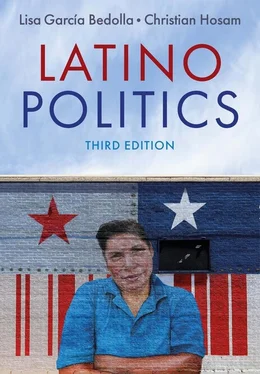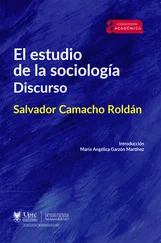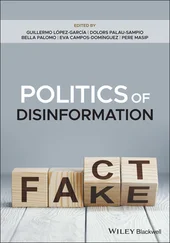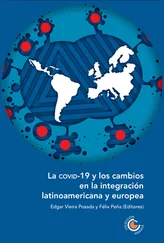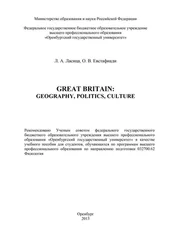When Trump won, Micaela could not stop crying. Because she knew my husband had been born in Mexico, she was convinced that Trump’s election meant he would be deported, and so we would have to leave the country in order for our family to be together. It took months to convince her otherwise. As a mother and an American, I worry about the trauma my daughter experienced in that election. I doubt she was alone in her anxiety and in her understanding of the political moment we were in. I ended the 2013 preface with such optimism, with her starting school in a social context that was so different from what I had experienced in Los Angeles in the 1970s. But Trump’s election has reminded me of the ebb and flow of social progress, and the deep racial animosity that still exists in the United States. That racial inequality was unmasked and deepened by the COVID-19 crisis in early 2020. The global pandemic laid bare how social stratification determines individuals’ life chances, making clear our profound interdependence and also our significant social vulnerabilities. I don’t know what having experienced this historical moment as a young child will mean for Micaela as she grows up. But I worry, both as a parent and as an American. At more than 60 million strong, we Latinos are part of the US social fabric. Nothing will change that. But I wonder what the future holds for all of us. And I struggle to maintain my optimism.
As this book went through copyedits, the COVID-19 crisis was raging and a new movement for racial justice was on the rise. I hope that these dual crises, providing an opportunity for anti-racist efforts advancing greater equity, will lead to real progress within US society, economics, and politics. But all the institutional and historical obstacles discussed in this volume remain in place. If the movement is able to sustain a multiracial, majority coalition, maximize its influence inside and outside of policymaking bodies, and sustain that energy over time, real change may be possible.
Latino politics is key to understanding the nature of contemporary American democracy. From the battles over sanctuary cities that illustrate how federalism shapes the lives of the undocumented, to what a disaster like Hurricane Maria tells us about the ways in which racial justice and environmental justice interlock and intersect, and, further still, how the status of the US relationship to Cuba informs us about how political change that at one moment seems like a vague dream can quite rapidly turn into a stunning reality. This project has reshaped and refined my understanding of my own status as a Black man, an immigrant, and a scholar of American politics.
I am so grateful to have had the opportunity to work on this book. What is both fascinating and harrowing about working on a project like this, one that requires you to distill the behavior, history, and resistance of a number of different groups, is that you have to think carefully about how to balance the need to tell stories and the requirement of placing those stories in the context of a larger narrative about American politics. This challenge has gotten even more intense with the election of Donald Trump and the global currents of xenophobia, nativism, and racism that undermine any hope of a more just, egalitarian society. It is simply not enough to tell the stories of how different ethnic groups arrive in the United States, because the places that they come from and the underlying politics that shaped their decision to emigrate continue to affect them here and now.
The core lesson that I learned from co-authoring Latino Politics is this: to understand someone’s lived experiences, make no assumptions about where they fall on things based on your own preconceptions. In this book, we encounter intra-racial conflict, counterintuitive voting decisions, and massive violence faced by various ethnic groups. But we also see solidarity movements, political growth and evolution, and collective mobilization that refuses to accept oppressive conditions. Latino politics is critical to understanding American politics because it helps us see a multifaceted “racial group” for whom ethnic identity, political affiliation, and lived experiences and aspirations are always up for grabs. When you sit with this work, you learn about political history and behavior, yes – but perhaps you will also gain tools to help you unpack how to make decisions, both political and not, in a world that increasingly forces us to make consequential decisions without clear answers.
Acknowledgments
Lisa García Bedolla
This book continues to represent the coming together of two sets of interests that have driven my intellectual work: the politics of the domestic and of the international. Also, as an academic, I have always been interested in questioning how things came to be, rather than accepting the conventional answers. Unfortunately, much of the study of US politics begins and ends at the US border, with little reference to the broader world outside or focus on internal communities that do not hold power. Consequently, when I began studying US politics, I found little that described my experience or my history. Surely, I should not have been invisible to those who study “American” politics, given that Florida, Louisiana, and what is now the western United States were once Spanish-speaking polities, and that the term “America” encompasses not only North America but also Central and South America and the Caribbean. Thus, on the domestic side, as a Latina growing up in the United States, I have had an ongoing concern with the political experiences of those of Latino origin residing there.
From an international perspective, as the daughter of Cuban immigrants, I have been faced with the geopolitical, historical, and social aspects of my family’s experience at every Thanksgiving dinner where my family adds black beans, rice, and pork to the traditional menu of turkey and stuffing. Those meals were always served alongside often heated political debate. As a result of those spirited discussions, I felt a strong desire to know better the history of my parents’ country of origin, and how and why my family ended up in the United States. With this book, I was finally able to bring together these two foci of experience. It is my hope that it helps readers to contextualize the US Latino experience beyond US borders, in order for them to understand more fully the factors influencing this community’s migration, politics, and politicization in the United States. And, importantly, I hope that, through a greater knowledge of the history of US relations with the Americas and their inhabitants, readers will understand better how these relationships have influenced the trajectory of American democracy since the nineteenth century.
Christian and I completed the third edition as COVID-19 raged globally. I was sheltered at home with my family, grateful for that home, for that family, and for the employment that allowed her to continue with this sort of intellectual work. But that work was hard, and slow, and I very much appreciate the patience of our Polity editorial team, Louise Knight and Inès Boxman, who were understanding of our delays and our plain inability to focus on the work in the ways that we needed to. We appreciate their commitment to this book and their tolerance of the delays caused by the global pandemic.
This experience has made me even more grateful for the many privileges in my life and for the family that has supported me, always, in this work. Nothing I do is more important than the people I am connected to, both personally and professionally. It is my sincere hope to provide them with the cheerleading, support, and laughter they bring to me. I also hope that my children continue to see this book as a tribute to their ancestors, those intrepid risk takers who made their lives possible. Finally, this book continues to be dedicated to my media naranja , José Luis Bedolla, who, after 29 years, continues to bring me joy and peace every day. Nothing would be possible without him.
Читать дальше
